

According to Forbes, populations living longer than ever, the emergence of technologies such as artificial intelligence (AI), and continued economic uncertainty will be the major factors impacting healthcare in 2024. To thrive, healthcare institutions throughout the U.S. will need to craft strategic capital construction programs to increase patient care capacity, deliver state-of-the-art treatment options, and improve regional access. Experienced program, project, and construction management consultants can help healthcare organizations achieve the high-level planning and detailed execution that a successful capital construction program entails.
Hill International, Inc. provides program, project, and construction management services for healthcare institutions throughout the U.S. and around the world. Hill’s experience encompasses projects in and around operational facilities, greenfield construction, hospital towers, behavioral health facilities, high-security detention center healthcare facilities, and more.
Some of Hill’s notable, recent work includes project management and inspection services for the University of Texas System’s Health Science Center in Houston, TX; owner’s representative services on multiple equipment replacement projects for Johns Hopkins Health System in Washington, DC and Philadelphia, PA; owner’s representative services for the Yocha Dehe Wintun Nation’s Capay Valley Health and Community Center in Esparto, CA; and project management services on Essentia Health’s Vision Northland® project in Duluth, MN. However, the Hill team’s ongoing work with Allegheny Health Network (AHN) throughout Western Pennsylvania is most illustrative of the many ways a management consultancy partner can deliver value for their healthcare clients.
A Balancing Act: Envisioning Program Success
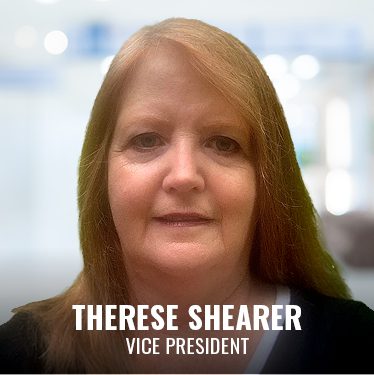
“All our team members act as owner’s representatives on behalf of AHN,” explains Hill Vice President Therese Shearer, who has worked as a part of Hill’s AHN team since 2014. Originally, AHN hired Therese and the Hill team to support projects associated with their $1 billion, 5-year capital improvement program. The program has since expanded multiple times and continues to grow, encompassing hundreds of projects, both new construction and renovations, across 14 hospitals, more than 250 clinic locations, and numerous outpatient centers. Hill’s AHN team has grown apace.
Therese oversees a Hill team comprising a number of full-time management professionals who work in a variety of roles throughout AHN’s organization. “At the highest level, Hill’s program management professionals are involved in the capital planning process to help Highmark Health [AHN’s parent organization] and AHN understand the cost of their wishes and prioritize projects for implementation,” she says. Working with AHN, these project managers develop cost and schedule estimates to paint a realistic picture of how expensive planned projects will be and how those projects can reasonably fit into AHN’s budget. They also use decades of construction management experience in healthcare and thorough understanding of market trends to provide timely, specific, and actionable advice on AHN’s capital planning.
Hill’s program management work also involves layers of stakeholder management. “There are a lot of competing factors that go into healthcare capital programming,” Therese goes on. “AHN’s philosophy involves wide expansion to increase regional access to healthcare. Medical directors of individual hospitals have their own projects, like requests for new equipment or new spaces. Then the facilities departments maintain lists of repair items that have to be taken care of. Highmark Health leadership needs to know what’s going on as well.” By managing the layers of interaction with a formal communications plan, the Hill team helps AHN’s many stakeholders voice their concerns and needs, maintains the flow of information, manages expectations, facilitates overall program reporting, and keeps everyone informed.
Ultimately, Hill’s high-level program management efforts help balance the upkeep and repairs required for day-to-day operations with the new construction, large renovations, and high-tech projects that will boost AHN’s capacity and reputation and grow their portfolio.
People Pairing: Tailored Staffing Solutions
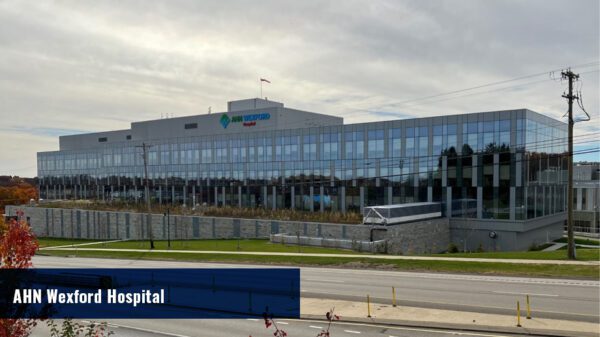
At the project level, the Hill team supports AHN by managing individual projects from early planning through project close-out. For each assignment, Hill’s project manager develops an initial scope, schedule, and budget and leads procurement. Hill also works with various user groups and hospital leadership to formulate project documents. Once the scope is defined, Hill oversees design and works with in-house staff and the rest of the project team to establish a budget or a guaranteed maximum price. Throughout a project’s life cycle, the Hill team updates the schedule, monitors the budget, performs quality assurance/quality control activities, and proactively addresses any risk. Additionally, Hill coordinates with stakeholders, tracks and reports on key project data, defines and measures key performance indicators (KPIs), and leads commissioning and close-out activities. A variety of specialists at Hill help manage procurement, tenant moves, infrastructure improvements for life-safety and environmental systems, information technology (IT) systems, and more.
At the beginning of Hill’s partnership with AHN, Hill project managers performed all these management functions and Therese worked in such an all-encompassing role for several years. “Now,” Therese says, “AHN requests specialty staff augmentation support from Hill—move coordinators, equipment planners and project managers, IT coordinators, other coordinators in support roles, etc.” For example, Hill’s equipment managers help ensure on-time delivery and installation of state-of-the-art medical equipment, secure the correct utility support for its installation, oversee related commissioning activities, and make sure hospital staff receives appropriate training.
As the Hill team lead, Therese identifies the Hill staff that can best provide AHN with the required management capacity and specialty expertise on each project selected for implementation. She has overseen the work of up to 20 professionals working concurrently throughout AHN’s system.
While Therese works to identify professionals with technical skills and experience matching AHN’s project requirements, she also considers the intangibles in her staffing role. “It’s about pairing people as much as it is about getting a person the right expertise,” she says. “Hill’s people work as an extension of AHN—they use AHN business cards and email addresses, work very closely with medical directors and other staff, and always have to act in the best interest of AHN. Unlike traditional construction management roles, we will coordinate with AHN’s staff and make direct recommendations to the owner. And much of our job is stakeholder management. So, we try to find the right fit given the different personalities and preferences at each hospital.”
From the Front Page to the Nitty-Gritty: AHN’s Project Portfolio
Since AHN’s projects range from routine maintenance to new hospital construction, the Hill team’s specific management approach can vary significantly, depending on a project’s scope. Some of the largest projects Hill has supported include:
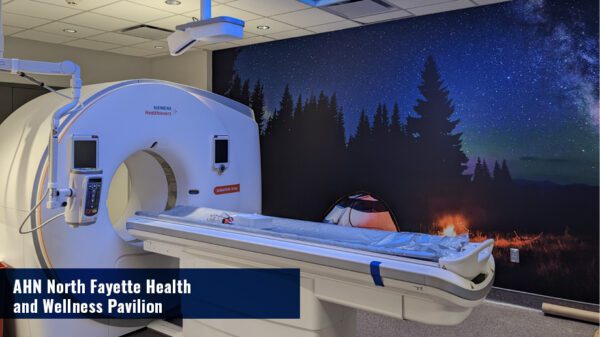
These large, high-profile projects involve multiple Hill professionals working with AHN staff in a variety of roles. This includes helping to plan the work in the context of AHN’s overall program goals; leading procurement and pursuing all approvals; managing budget, schedule, quality, risk, and change from concept through completion; overcoming challenges and the project’s unique constraints; and managing stakeholders and communications; measuring KPI performance; and tracking and reporting activities for AHN and Highmark.
Do No Harm: How Hill Helps Manage Major Risks
The most important risks faced by healthcare organizations undertaking any kind project in an occupied facility are infection, dust, and vibration control. Any such disruption constitutes a major risk. “Whenever we’re planning for and managing work in an occupied facility, we always think in terms of ‘doing no harm,” Therese adds. “That’s the basis of our approach to managing risk.”
Hill’s project teams reduce risk by careful planning and monitoring during construction to keep projects in compliance with all regulations established by AHN and governing agencies, such as the Pennsylvania Department of Health. More important, says Therese, is the team’s approach to communications.
“There are so many different people from different departments involved in hospital life—nurses, doctors, orderlies, facilities managers,” says Therese. “And they’re so busy doing their own work. We try to make sure they understand what we’re doing, why, and how, and try to give them a sense of how long things are going to take. That reduces confusion and minimizes the chances of our work impacting hospital operations.” For example, Therese says that using tape on floors to mark the boundaries of a planned project allows staff to visualize the way construction will impact their environments. Hill’s communication efforts also call for the use of differentiated communication styles. That way, whether Hill’s program/project manager is communicating with an architect, a medical director, or a nurse, their message is clear. This enables hospital staff to navigate construction, helps mitigate risk, and increases stakeholder satisfaction more easily.
Flexibility, Capability, & Client-First Focus: Hill’s Healthcare Approach
Because of the flexibility enabled by Hill’s staffing approach, which ensures core program, project, and construction management capacity, as well as a specialist coverage on projects throughout AHN’s system; the Hill team’s expertise and experience, honed over years of working with our clients in the healthcare sector; and our owner-oriented approach, free from any conflicts of interest, AHN’s capital improvement program is thriving and, according to Therese, there is no end in sight.
Dedicated program and project management support ensures life-cycle management coverage for any projects healthcare organizations and their stakeholders select for implementation—no matter how complex or routine. With a strong team of experienced managers and globally renowned subject matter experts that always prioritize their clients’ best interests, Hill helps project teams overcome challenges associated with hospital construction and deliver success. The result: more efficient projects and more funding for additional, impactful projects that enable healthcare organizations to stay ahead of the curve.
Hill’s approach is suitable and scalable for any healthcare institution looking to move their capital programs forward.
To speak with Therese about your own capital program needs, please reach out to her via email at [email protected].
To learn more about Hill’s work in the healthcare sector, please visit our website at www.hillintl.com.
Share

June 23, 2025 | Articles
Jeffrey Hurley Joins Hill’s Northern California Rail Practice

June 23, 2025 | Articles
Ready, Set, Grow: First VP Chad Koelling Takes Charge of Hill’s Mountain West Region
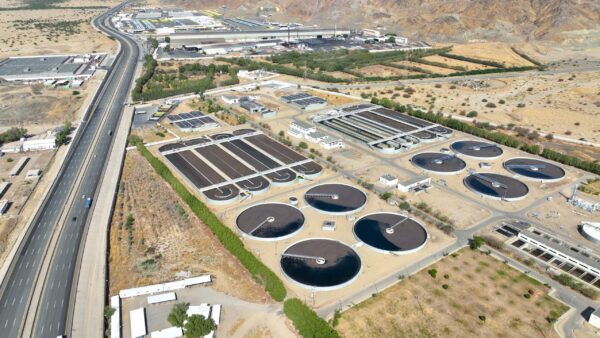
June 8, 2025 | Articles
PMO in Saudi Arabia: The Holistic Approach to Realizing a National Mega-Portfolio
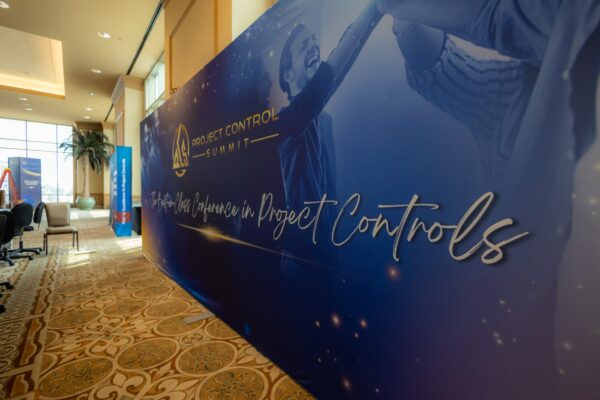
June 1, 2025 | Articles

May 26, 2025 | Articles

May 12, 2025 | Articles
Keeping Your Water/Wastewater Programs Flowing with Public Relations

April 27, 2025 | Articles
Oiling the Machine: Steps to Successful Permitting on Infrastructure Megaprojects

April 20, 2025 | Articles
Sustainable Scaling: Solutions for Managing Risk on Europe’s Data Center Projects